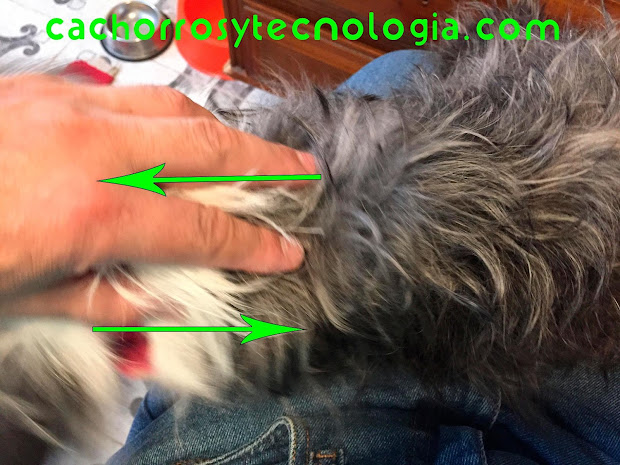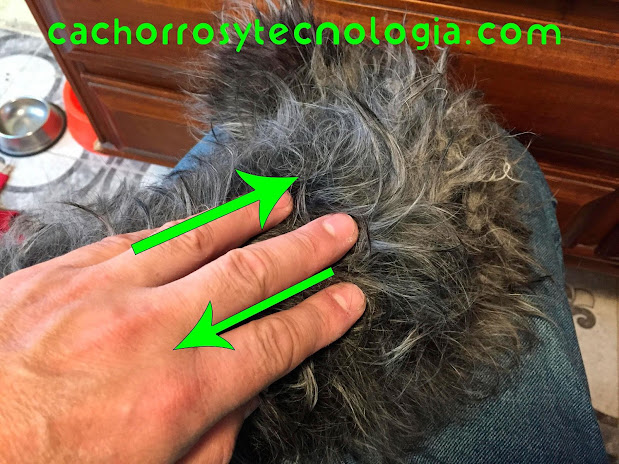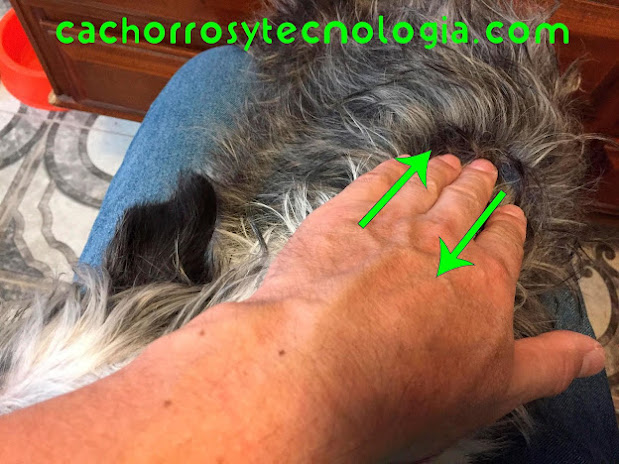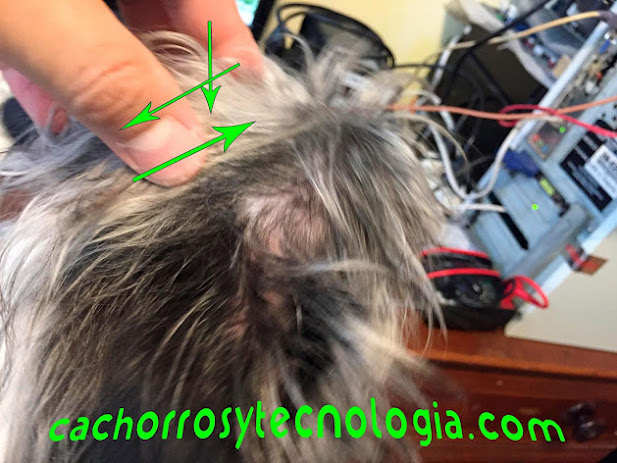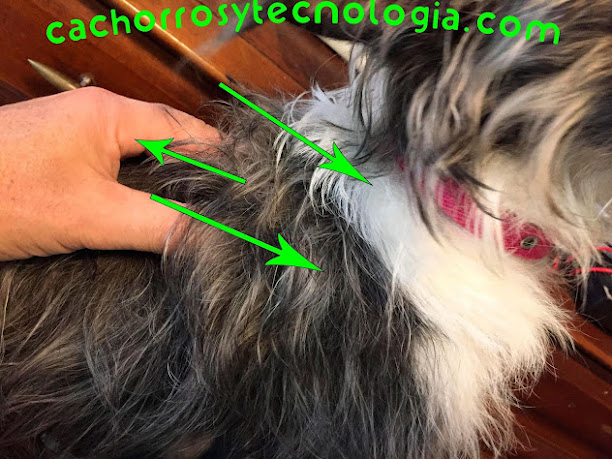Como hemos comentado, la vitamina C, al ser hidrosoluble, se elimina
con facilidad a través de la orina, de forma que no se acumula en el
organismo. Llega a un umbral de saturación y, en ese momento, se elimina
inalterada por vía renal. Por lo tanto, su consumo, incluso si en algún
momento se supera la dosis recomendada, no va a tener consecuencias
negativas para el perro.
En conclusión, la vitamina C presenta muy baja toxicidad
y se la considera prácticamente inocua. El principal problema que se
podría generar es que la eliminación del excedente va a acidificar la
orina. Por otra parte, a dosis altísimas podrían desencadenarse diarreas, que remitirán nada más se retire el exceso de esta vitamina.
------------------------------------------
Vitamin C is a micronutrient that performs important and diverse functions that keep our dog's body in perfect condition. There are usually no deficiencies of this vitamin, which is partly capable of synthesizing the dog itself, so if we think that it needs a supplement, we should always go to the vet first.
In this Puppies and Technology article we are going to explain how vitamin C works for dogs, in which cases it can be useful and what happens if we exceed its dosage.
What is vitamin C?
Vitamins are micronutrients that are essential in small quantities so that the dog's body can carry out its vital functions successfully. They are essential because the dog cannot make them on its own from other nutrients. This means that it is essential that you eat them in your diet. Although, in the case of vitamin C, it is found in two forms: as ascorbic acid, better known, or as dehydroascorbic acid. Dogs can generate ascorbic acid from glucose. In general, the amount they produce can be enough to cover their needs, but it will depend on many factors.
Vitamins are divided into two groups according to the substance in which they are diluted. Thus, we speak of fat-soluble vitamins, which dissolve in fat, and water-soluble vitamins, as is the case of vitamin C that concerns us. As the name suggests, they dissolve in water. For this reason, the body will not be able to store them for a long time, which means that, if there is a deficiency, its effects will be noticed immediately. Likewise, these vitamins are eliminated in the urine.
Vitamin C for dogs will participate in different processes in the body. Basically, it intervenes in the formation of muscles, blood vessels, bones and teeth. In addition, it helps to properly absorb iron and participates in healing processes.
What is vitamin C for dogs for?
We usually associate vitamin C with an antioxidant effect, fighting free radicals and reducing oxidative damage, but its consumption offers other important advantages. These are the most outstanding beneficial effects of vitamin C in the body of dogs:
Prevents the appearance of kidney stones.
Promotes urinary tract health.
Reduces the signs of hip dysplasia.
It participates in the formation of bones, since it is needed for collagen, which is one of the components of bone and connective tissue and dentin.
It stimulates the production of collagen, which is also essential for the maintenance of the skin and ligaments. Therefore, vitamin C is beneficial for dogs with allergies or dermatitis.
Together with other vitamins, such as E, and minerals such as selenium, it could reduce the progression of arthritis. As an antioxidant, it delays cartilage degeneration.
It contributes to reducing the oxidative stress produced by different diseases, for example, those related to the liver. In these cases, vitamin C is often combined with other antioxidants.
It is also recommended for convalescent dogs or dogs that show signs of stress.
Finally, it helps in cases of bleeding caused by capillary fragility.
Vitamin C Dosage for Dogs
The adequate dose of vitamin C for our dog can be provided through food or by resorting to supplements. In this case, only the veterinarian can prescribe its use and the most appropriate dosage for the characteristics of our dog. In general, it will depend on the vitamin C that is chosen.
Vitamin C supplements for dogs can be marketed in a liquid format. The milliliters to administer will depend on the weight of the dog and the brand that the veterinarian prescribes. Vitamin C can also be found in tablets. The necessary quantity will be established in the same way as in the liquid presentation. In both cases it can be given one or more times a day. It is also marketed as an injectable solution.
Lastly, vitamin C is not a mandatory declaration ingredient in feed, so we may not find it in the list of components. If we are interested in knowing the exact data, we will have to contact the manufacturer directly.
How to give vitamin C to a dog?
In general, by choosing a quality diet appropriate to the vital circumstances of each moment, we will be providing all the vitamin C for dogs that our dog needs. Commercialized diets usually cover all nutritional needs without having to add any supplements. In addition, there are foods with vitamin C for dogs that can be integrated into the diet. The following stand out:
Organ meats, such as liver.
Various fruits, such as papaya. It is typical to cite lemon, orange or strawberry as fruits with vitamin C for dogs, however, not all dogs like them due to their flavor and aroma, which is one of the smells they hate the most.
Vegetables like broccoli.
Parsley.
Discover in this video which are the best fruits for dogs, some of them with a high amount of vitamin C:
Side Effects of Vitamin C for Dogs
As we have mentioned, vitamin C, being water-soluble, is easily eliminated through the urine, so that it does not accumulate in the body. It reaches a saturation threshold and, at that moment, it is eliminated unchanged by the kidneys. Therefore, its consumption, even if the recommended dose is exceeded at some point, will not have negative consequences for the dog.
In conclusion, vitamin C has very low toxicity and is considered practically harmless. The main problem that could be generated is that the elimination of the excess will acidify the urine. On the other hand, at very high doses diarrhea could be triggered, which will subside as soon as the excess of this vitamin is removed.




